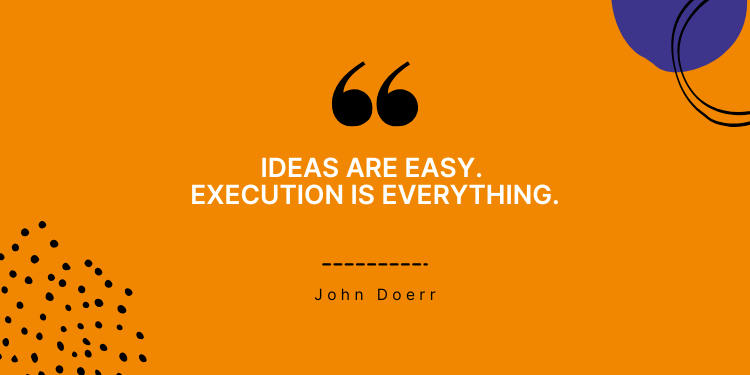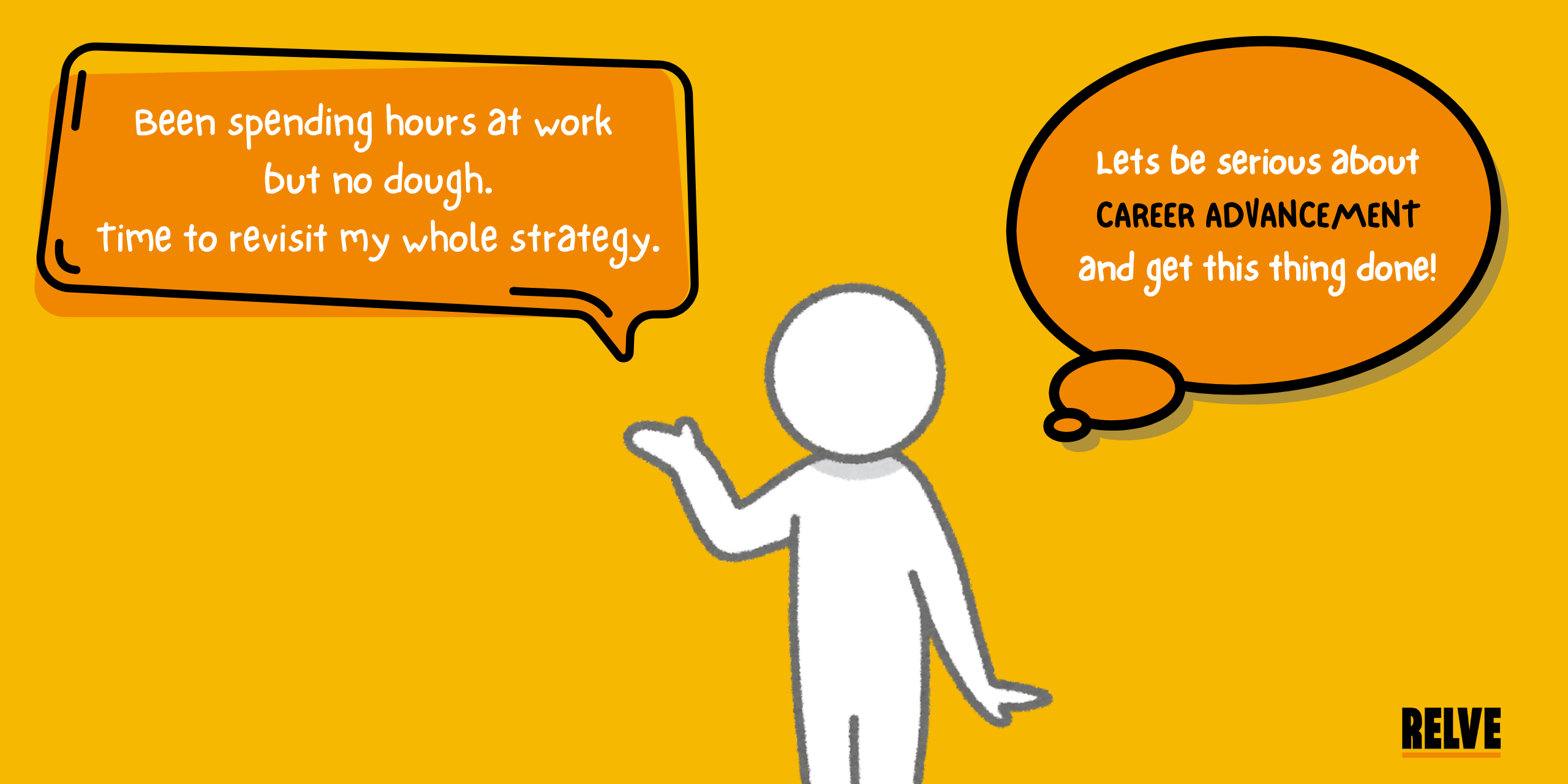You’re hitting deadlines, exceeding expectations, and even picking up extra responsibilities that weren’t technically in your job description. You stay late when needed, contribute in meetings, and mentor new hires when they seem lost. But there’s been no discernable progress on career advancement.
Despite all that effort, you’re stuck. No raise, no promotion, and no recognition. Meanwhile, that one coworker – yes, the one who somehow fumbles through half their tasks – just got a title bump and a corner desk.
You find yourself asking, “What am I doing wrong?”

Here’s the thing: career advancement doesn’t just happen because you work hard. It happens when you work strategically. Hard work is important, but it’s not enough on its own. Advancing in your career requires a mix of deliberate planning, skill development, networking, visibility, and self-advocacy.
Here’s how to work your way through career advancement.
What is Career Advancement?
People often assume that career advancement simply means climbing the corporate ladder – going from an entry-level employee to a manager, then to an executive, and eventually ruling the boardroom. And while that’s one path, it’s far from the only one.
The key takeaway? Career advancement isn’t just about promotions – it’s about progress. It’s about moving forward in a way that aligns with your goals, values, and aspirations. Whether that means becoming a thought leader in your field, earning a higher income, or transitioning into a role that better fits your passions, the essence of career growth is deliberate, continuous progress.
Now, if you’re wondering, “What does career advancement mean for me?”, that’s the question you need to answer before you start climbing.
Here’s how you can take charge of your career advancements and create opportunities instead of waiting for them.
1. Set Clear Goals with Strategic Career Planning
One of the biggest mistakes professionals make in their careers is not defining a clear direction for where they want to go. Without a structured plan, you’re simply drifting in your profession, reacting to whatever opportunities come your way rather than creating the path you want to follow.

Successful individuals take a proactive approach and ensure that their actions align with their career advancement strategies. They don’t just wish for success; they plan for it.
Career Advancement Tips for Goal Setting
Use this three-step process to get started on creating your goals and future roadmap.
| Career Advancement Tips for Goal Setting | |
|---|---|
| Define Your Future Role | Write down your ideal job role in 3–5 years. Defining a clear vision for your career helps you make informed decisions that align with your objectives. Whether you want to move into leadership, increase your earning potential, or shift industries, knowing where you want to go is the first step. |
| Identify Skills & Experience Gaps | List the skills and experience gaps you need to fill. Analyze where you currently stand versus where you want to be. Identify gaps in knowledge, skills, and expertise that might be preventing you from progressing to the next level. |
| Use the SMART Framework | Use the SMART framework (Specific, Measurable, Achievable, Relevant, Time-bound). Goals that are too vague or broad can feel overwhelming. Instead of saying, “I want to get promoted,” say, “I want to move into a managerial role within the next 18 months by taking on more leadership projects, completing a leadership certification, and improving my public speaking skills.” |
Translation? Own your goals and actively work towards them. If you don’t advocate for your own career, no one else will.
2. Seize Career Advancement Opportunities Before Others Do
Opportunities don’t always come knocking – you often have to create them or recognize them before anyone else does. Many professionals miss out on career advancement opportunities simply because they assume they need to be invited into the next level of their careers. But the truth is, if you’re waiting for permission, you’re already behind.
How to Identify Careers with Advancement Opportunities
Next up, here’s what you need to do:
| Take on High-Visibility Projects The more visible your contributions are, the more likely you are to be noticed by decision-makers. Volunteer for cross-departmental projects, initiatives, and leadership tasks. |
| Say Yes to Leadership Roles Even if you’re not formally promoted, start acting like a leader in your current role. Mentor junior employees, offer solutions to workplace challenges, and demonstrate readiness for more responsibility. |
| Network with Decision-Makers Building relationships with influential leaders in your company or industry is one of the fastest ways to accelerate your career. Seek out mentors, attend events, and engage in professional networking. |
Translation? Your boss won’t promote you for being “good.” They’ll promote you for delivering results.
3. Invest in Continuous Learning & Skill Development
The workplace is evolving rapidly, and the skills that made professionals successful ten years ago might not be enough today. The best way to stay ahead is by continuously upgrading your knowledge, skills, and expertise.
Employers look for individuals who are adaptable, innovative, and committed to self-improvement. If you’re not actively learning, you’re falling behind.
How to Gain a Competitive Edge
To become competitive and a better, efficient version of yourself, consider doing this:
| Tip | Description |
|---|---|
| Take Industry-Specific Courses | Explore platforms like Google, LinkedIn Learning, and Coursera to gain specialized knowledge that enhances your value to employers. |
| Earn Professional Certifications | Credentials like PMP, AWS, and CFA boost your credibility and marketability in competitive fields. |
| Seek Mentorship | Mentors offer insight, career guidance, and networking opportunities to help you grow professionally. |
Write down the skills you need and start working toward acquiring them today.
4. Master Negotiation & Workplace Communication
Many professionals believe that simply working hard will get them promoted, but that’s only part of the equation. You also need to effectively communicate your value, negotiate your worth, and advocate for yourself.
How to Communicate Effectively for Career Growth
When it’s time for career advancements, walk into salary discussions prepared, confident, and ready to advocate for yourself.
Here’s how to increase your chances of success:
- Document your wins. Keep a record of the projects you’ve led, the revenue you’ve generated, and the impact you’ve made. Having concrete data will make negotiations easier.
- Ask for feedback regularly. Instead of waiting for annual performance reviews, actively seek feedback to improve and demonstrate initiative.
- Negotiate strategically. When asking for a raise or promotion, present clear evidence of your contributions and the value you bring to the organization.
Conclusion: Here’s What You Need to Do
At the end of the day, your career is your responsibility. Failing to take control means someone else will.
The time to act is now. Not next year, not when you “feel ready”, and definitely not when your boss finally recognizes your potential.
This helpful little checklist can help you get started:
So take action. Set your goals. Learn new skills. Build your network. Speak up. Start owning your career advancement today.
